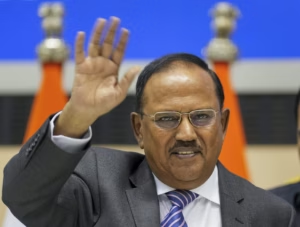PDF Chief Hakeem Yaseen urges govt to safeguard shepherds’ livelihood in Budgam forest zones
Srinagar,May 06: President of the Jammu and Kashmir Peoples Democratic Front (PDF) and former minister, Hakeem Muhammad Yaseen, on Tuesday expressed serious concern over the restrictions imposed on local shepherds in upper forest areas of Budgam district. These areas include popular tourist destinations such as Tosamaidan, Doodhpathri, and Yousmarg.

In a statement issued here, Hakeem Yaseen said that while combating terrorism is essential, it should not come at the expense of the livelihood of local shepherds, especially those from Gujjar, Bakerwal, and Chopan communities, who depend on these highland pastures for grazing cattle, sheep, and goats.
“We support the government’s efforts in fighting terrorism, but the needs and rights of our people must also be respected. These shepherds have been traditionally dependent on these pastures for generations, and denying them access threatens their only source of income,” he said.
Hakeem Yaseen noted that although tourism has been restricted in these regions due to security concerns, locals should not be treated the same as visitors. Shepherds’ seasonal migration to these meadows is vital to their economic survival, especially in a region already grappling with high unemployment, he said.
“Every summer, these communities move to these areas to sustain themselves. The fight against terror must not deprive poor families of their basic livelihood,” Yaseen said.
The senior leader appealed to Prime Minister Narendra Modi, Union Home Minister Amit Shah, Lieutenant Governor Manoj Sinha, and Chief Minister Omar Abdullah to intervene in the matter urgently.
“I request the leadership at all levels to intervene on humanitarian grounds. Immediate action must be taken to allow shepherds access to traditional grazing areas so they can continue earning a living. These communities deserve relief and support—not exclusion,” he said.
Hakeem Yaseen urged the administration to review its current restrictions and adopt a more nuanced approach that distinguishes between counter-terror operations and essential economic activities of the local population.






